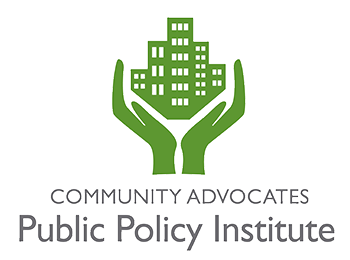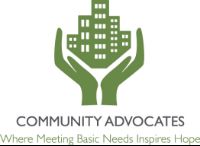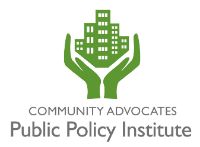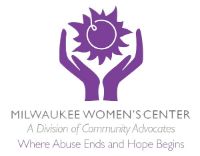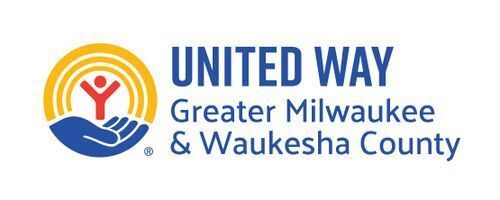The goal of Youth Works MKE was to link teens at risk of criminal involvement with subsidized jobs and supportive services, including mentoring to increase employment skills and positive engagement while preventing participation in criminal and delinquent activities.
In addition to income, early employment offers an important foundation for a lifelong link to the world of work which includes the intrinsic rewards of completing tasks; knowledge of how to act, dress and communicate professionally; and familiarity with navigating employee-supervisor relationships. At the most basic level, employment keeps youth busy in a positive way when they would otherwise be looking for ways to pass time.
The annual average employment rate for teens in 2010 was the lowest ever recorded since the end of World War II. The nation’s teen summer employment rate plummeted from 45% in 2000 to 26% in 2010, a 40% drop.
In a 2011 Center for Labor Market Studies report, McLaughlin and Sum claim, “The substantial drop in teen employment prospects has had a devastating effect on the youngest teens (16-17), males, Blacks, low-income youth, and inner city, minority males. Those youth who need work experience the most get it the least.”
Employment with added support, mentoring, and connections to resources such as help getting a driver’s license is needed to stem the tide of youth violence currently being experienced in Milwaukee. We have no time to waste in reinventing the wheel, so we are replicating a tested program model out of Chicago, One Summer Plus. The impact Youth Works MKE sought to make is truly life-changing, building lasting improvements in outcomes for the youth in social-emotional learning and connection with employment and mentoring.
Replicating Chicago’s Success
This program model was initially implemented by Chicago’s Department of Family and Support Services as the One Summer Plus program in 2012. One Summer Plus combines a part-time summer job with proven cognitive behavioral therapy-based programming. It is unusual and highly valuable that the program was implemented with a comparative “control” group which did not receive the intervention, generating a rigorous body of evidence analyzed by University of Chicago researchers.
Participants in Chicago’s One Summer Plus implementation showed an enormous proportional drop in violent-crime arrests after seven post-program months – a 51% decline compared to the control group. This decline translates to 3.7 fewer arrests per 100 participants. The researchers suggest it is too early for a full cost-benefit analysis but they predict that, if the results persist, the program’s benefits may eventually outweigh its costs, given the extremely high social costs of violent crime and incarceration. (Click here for the evaluation.)
One Summer Plus was specifically designed to counter what some other studies had found – that the positive impact of subsidized employment programs sometimes fades out quickly after the program ends. In order to help program effects to endure, the program added an evidence-based element using cognitive behavioral therapy-based programming designed to improve youths’ decision-making. This is referred to as social-emotional learning, with mentors facilitating group learning and providing additional mentoring support. As the evaluation report explains, “The motivating idea is that quick, automatic decision-making often drives youth behavior. Relying on initial, unthinking reactions may lead youth to behave poorly in the workplace or decide not to persist in pro-social programming.” Prior research has shown that social-emotional learning strategies can reduce violent crime and create lasting improvements in school engagement.
Pilot Implementation of Youth Works MKE
Community Advocates Public Policy Institute partnered with the Boys & Girls Clubs of Greater Milwaukee to implement the pilot program. Between 25 and 40 low-income adolescents participated at Boys & Girls Club locations, where the youth work and are also linked with Social-Emotional Learning sessions.
Youth Works MKE was funded by the Milwaukee Brighter Futures Program.
Feasibility Assessment with NCCD
Following a national grant competition, in March 2015 we were selected by the National Council on Crime and Delinquency (NCCD) for a special opportunity. As a grantee of the Social Innovation Fund’s Pay for Success program, NCCD is partnering with three programs. As an awardee, we received significant technical assistance from NCCD to assess feasibility and develop Pay for Success capacity with regard to the Youth Works MKE program.
Pay for Success, also known as social impact investing or social impact bonds (SIB), is a new approach that brings together private, public and non-profit sectors to provide up-front funding to service providers. If the services provided achieve agreed-upon outcomes, the government repays the investors. If the outcomes are not achieved, the government does not pay, allowing the public sector to receive the highest return on taxpayer investments. Seven Pay for Success programs have been piloted in the United States with substantial bipartisan support, in the fields of juvenile justice, early childhood education, homelessness prevention and recidivism.
Youth Works MKE could prove to be a good match for a Pay for Success model of funding, which requires clear outcome tracking, because the outcomes produced in Chicago’s implementation showed clear reductions in arrests. NCCD will help us analyze the pilot implementation, build evaluation capacity, increase community-wide awareness of Pay for Success, connect to Pay for Success experts, and assess the feasibility of supporting Youth Works MKE with a Pay for Success funding model.
